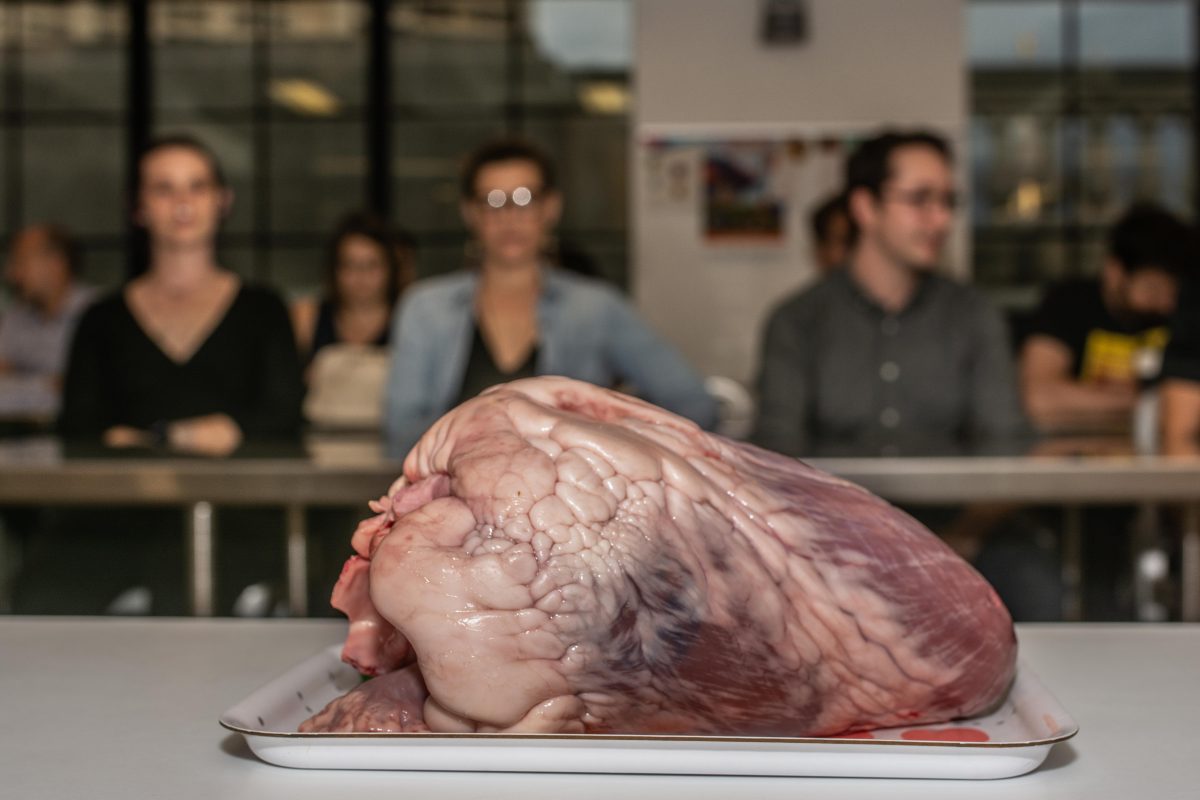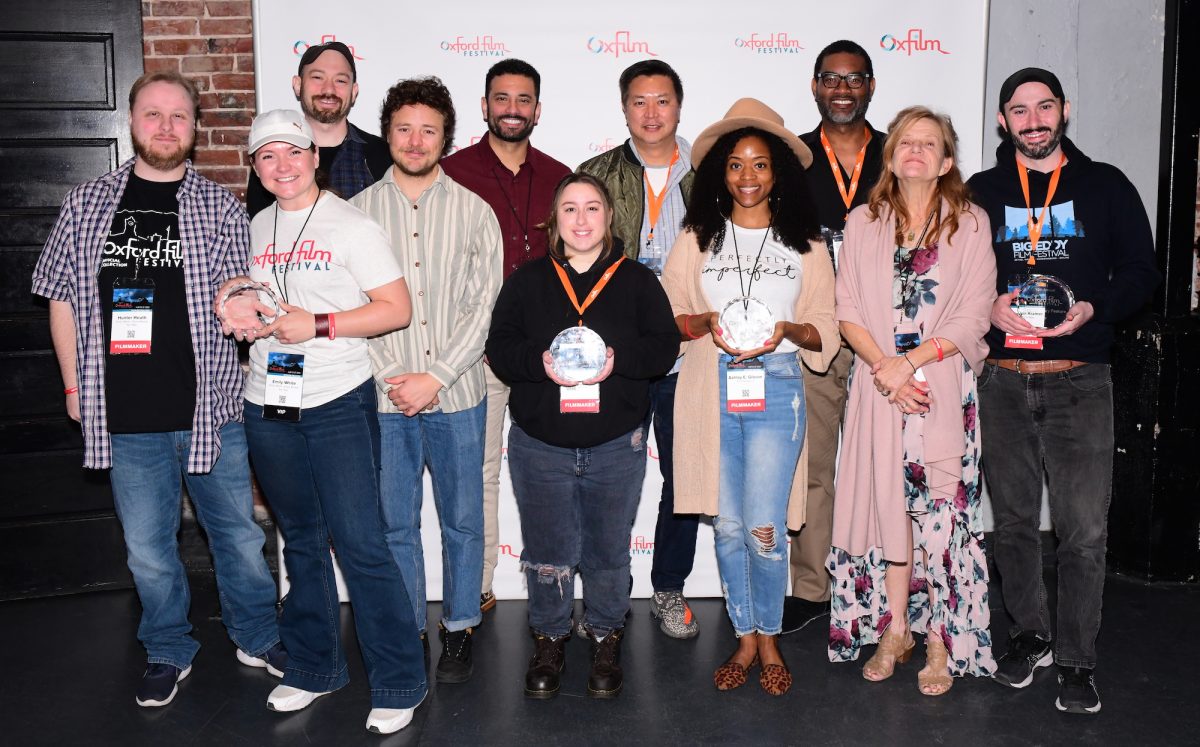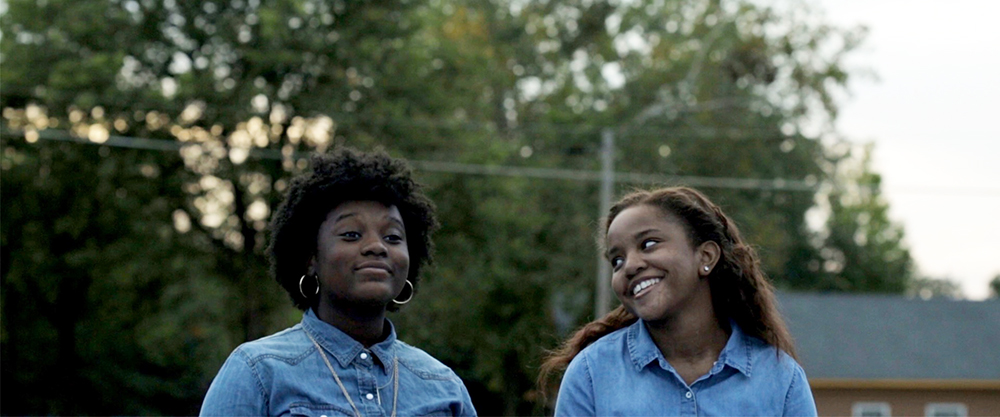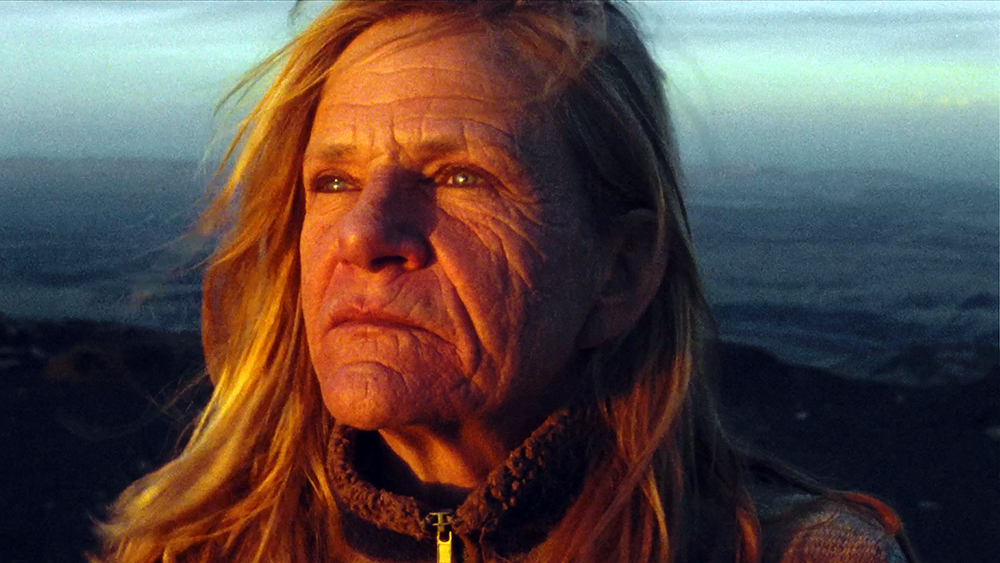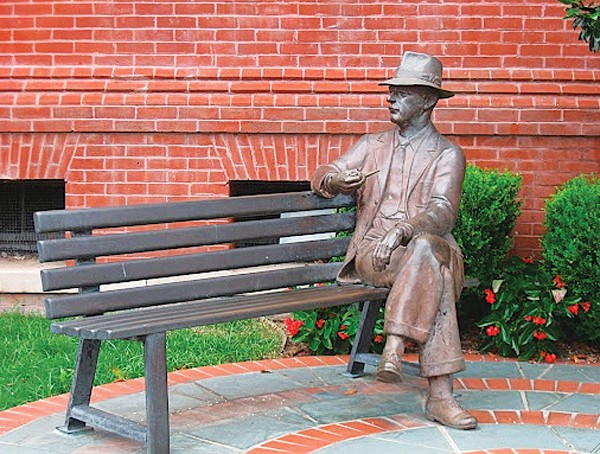John McCain, the old warrior, came to Oxford, Mississippi, last Friday to punch out an opponent. Barack Obama, the former law professor, came to take part in a conversation that he presumed would favorably showcase his elegance and expertise.
That was the story of the first presidential debate at Ole Miss’ Gertrude Ford Center, and it should have been prefigured by the way in which the previous week had gone. On the previous Wednesday, as we all subsequently learned, Democrat Obama reached out to Republican McCain to see if the two might make a joint statement concerning the ongoing bailout negotiations in Washington.
McCain’s response was to call a press conference in which he made the shocker announcement that he intended to “suspend” campaigning and return to Washington to do … whatever. And this could well mean he would miss the much-ballyhooed one-on-one down in Oxford. Meanwhile, he let it be understood that Obama could follow him to Washington if he cared to.
In the sequel, we all saw the photo-op shots of McCain at the conference table three seats to the right of President Bush, and, sure enough, there was Obama three seats to the left. God only knows what either of them contributed to a dialogue that, as an anxious and stupefied financial world would learn this week, led to no immediate agreement.
Meanwhile, down in Oxford, preparations for the debate went on feverishly if somewhat nervously, in the knowledge that Obama would definitely be down for something — a “town hall” meeting if nothing else. And when, on Friday morning, McCain finally allowed as how he’d be there, too, all seemed well.
If the Arizona senator had wanted center stage, he’d got it, for better or for worse. Had his off-again/on-again attitude toward the debate stamped him as a waffler? Or would he know how to use the spotlight, now that it was turned fully on himself?
In either case, the initiative was McCain’s. If it hadn’t been obvious before, it certainly was when, only minutes before showtime, Cindy McCain came onstage for an unexpected cameo just when Janet Brown, executive director of the Commission for Presidential Debates, was getting ready to say her lines in the ritual dog-and-pony show that preceded the debate proper.
It was obvious in the candidates’ characteristic tics as the debate wore on. As one of the network summaries would note, McCain uttered countless variations on the phrase “Senator Obama doesn’t understand,” meanwhile looking stonily ahead. Obama’s refrain, on the other hand, was agreeable in the extreme, consisting of frequent nods of the head as his adversary talked, followed by equivocations beginning, “Senator McCain [alternately, “John”] is right.”
All of this came off unpredictably. In the immediate aftermath, a reporter for the BBC began his TV stand-up with these words: “Whatever the spin doctors will say, the reality is that Barack Obama has always found it hard to match his debating skills with his inspiring oratory. John McCain was far more aggressive on foreign policy. He made his experience count.”
And there was this, from Rhodes College professor (and sometime blogger) Michael Nelson, a longtime pol-watcher who has written several books on political campaigns and the presidency: “McCain didn’t look like an old man!” Meaning that he came off as seasoned rather than doddering.
But the first poll soundings, like one from CBS giving Obama a 14-point edge among uncommitted voters and another from CNN showing a 51-38 percent differential, seemed clearly to lean toward the Democrat.
Some key to this disconjunction may lie in the curve thrown the two aspirants right off the bat by moderator Jim Lehrer, who announced: “Tonight’s [debate] will primarily be about foreign policy and national security, which, by definition, includes the global financial crisis.”
As translated into what actually ensued, what he meant was that issues relating to “foreign policy and national security” weren’t touched, even tangentially, until some 30 minutes into the hour-and-a-half proceedings, when Lehrer happened to ask a more or less pro forma question about the economic impact of spending on the Iraq war.
In the half hour preceding that foot-in-the-door on what had been billed as a foreign policy debate, McCain and Obama traded licks on the ongoing financial crisis, focusing rather more on their standard economic boilerplate than on the current bailout crisis itself.
Each of them deplored the moment in the roundest terms. Obama: “We are at a defining moment in our history. Our nation is involved in two wars, and we are going through the worst financial crisis since the Great Depression.” McCain: “We’re not talking about failure of institutions on Wall Street. We’re talking about failures on Main Street, and people who will lose their jobs, and their credits, and their homes.”
Each candidate touted his own health-care and energy proposals and deplored his opponent’s. Obama got to talk about his proposed middle-class tax cuts to benefit “95 percent” of the public (the percentage who consider themselves “middle class,” it would appear) and his determination to close tax loopholes for the wealthiest few. McCain got to complain about earmarks and pork-barrel spending and what he said was the second highest rate of business tax in the world.
As for the issue of the moment — the threatened insolvency of the nation’s economic structure — both candidates claimed to have done something substantial to fix things.
Obama talked about the four general propositions he had proposed as add-ons to the $700 billion bailout package: enhanced oversight, a means by which taxpayers might recoup their investment, a lid on “golden parachutes” for CEOs, and help for homeowners on foreclosures.
McCain made the case for the efficacy of his own bailout — from the campaign trail. “And yes, I went back to Washington, and I met with my Republicans in the House of Representatives. And they weren’t part of the negotiations, and I understand that. And it was the House Republicans that decided that they would be part of the solution to this problem.”
Whatever.
When asked point-blank by Lehrer, both candidates said they were inclined to vote for the emerging bailout deal, whereby $700 billion of suspect Wall Street securities would be bought up by the federal government (i.e., the taxpayers). In any event, neither would have to right away, inasmuch as the House — all those advance predictions of success notwithstanding — rejected the proposed bailout package 225-208, with 95 Democrats and 133 Republicans voting no.
Once a clean transition was made into foreign policy discussion per se, McCain, whose own military background is so well known, seemed to feel himself on more confident ground. “I have the ability, and the knowledge, and the background to make the right judgments, to keep this country safe and secure,” he said. “I don’t think I need any on-the-job training. I’m ready to go at it right now.”
Obama was more tentative, to the point that some of his hesitations were built into the transcripts that were handed out irregularly to the attendant media: “And part of what we need to do, what the next president has to do — and this is part of our judgment, this is part of how we’re going to keep America safe — is to — to send a message to the world that we are going to invest in issues like education, we are going to invest in issues that — that relate to how ordinary people are able to live out their dreams.”
There were moments of heat, moments of light, and some nice extended dialogues on policy, though — largely at McCain’s insistence — far too much time was devoted to the pluses and minuses of the “surge” and to the Republican candidate’s repeated praise of the “great general” David Petraeus, current commander of American forces in Iraq.
Each man earned style points, and these may have benefited McCain disproportionately, since much of what he had said and done in recent weeks (notoriously his pronouncement, early in the bailout crisis, that the American economy was “fundamentally sound”) had seemed curiously off-point, arousing speculation here and there (and anxiety among his supporters) concerning his age and fitness.
Early in the debate, when Lehrer, playing bad-boy moderator, commanded Obama to direct a rather professorial and abstract criticism to McCain directly, the Arizona senator managed a wry grin and said, “Are you afraid I couldn’t hear him?” When Obama chided McCain for not promising an audience to the prime minister of Spain, the following exchange ensued:
Obama: “If we can’t meet with our friends, I don’t know how we’re going to lead the world in terms of dealing with critical issues like terrorism.”
McCain: “I’m not going to set the White House visitors schedule before I’m president of the United States. I don’t even have a seal.”
More impressively, McCain seemed to have an all-purpose instant recall when he needed it. At one point, after Lehrer had cited a platitude from former president Dwight Eisenhower, McCain responded simultaneously with an apt reference to letters Ike had written as commander of the Allied Expeditionary Force on the eve of D-Day in World War Two.
Sometimes, however, McCain over-played his hand. When he chastised Obama for talking out loud about the prospect of invading Pakistan, Obama was quick to remind him of a famous indiscretion of his own: “Coming from you, who, you know, in the past has threatened extinction for North Korea and sung songs about bombing Iran [“Bomb, Bomb, Bomb/ Bomb, Bomb Iran!,” to the tune of the old rocker, “Barbara Ann”], I don’t know how credible that is.”
In the end, neither man gained a decisive victory, nor did either commit an error so serious as to undermine his chances. The debate might well be regarded as a draw, though even before the next two presidential forums, this Thursday’s debate in St. Louis between vice-presidential candidates Sarah Palin and Joe Biden could tilt things one way or the other.
Only one thing is surefire about that one: Win, lose, or draw for Republican Palin, a resurgent Tina Fey and Saturday Night Live will have new fodder for two nights later.
That’s if the congressional version of Deal or No Deal? doesn’t end in disaster between now and then. In which case — literally — all bets are off.
• Former Memphian Babs Chase, now head of foreign press for the State Department, shepherded a large corps of journalists from various countries around Oxford. Sitting at a picnic table last Thursday night on the lawn of the university’s journalism facilities and dining on Southern-fried specialties were Sulaiman Alamin, from Sudan; Ole Nyeng of Denmark; and Jean-Marc Veszely of Belgium.
All were frank to say they hoped for an Obama victory — a reminder of the McCain strategy of trying to stigmatize the Democratic candidate’s support as reflecting a foreign consensus rather than a Middle American one. But all three journalists made it clear they were motivated less by any “celebrity” of Obama’s than by fear and loathing concerning what they see as the disasters of the eight-year Bush administration.
But, asked who they thought would win, the three split, with only Nyeng, the Dane, opining in favor of Obama. Veszely was not prepared to pronounce, and Alamin refused to believe that Americans would actually vote for someone with African ancestry. He saw McCain as the victor, primarily on racial grounds.
“Things here have not changed that much,” said the Sudanese freelancer, though his point would have been disputed by Chancellor Robert Khayat and other University of Mississippi officials, who did their best all week to convince the media, foreign and domestic, that things had indeed changed, not only in America at large but at Ole Miss itself. Once a citadel of segregation but now struggling to redefine itself, the school is, in the words of a letter from Khayat that appeared in every media press packet, “a nurturing and diverse community where people of all races, religions, nationalities, economic groups, and political alliances live, study, and work comfortably together.”
Now that’s something that no major Mississippi official, governmental or academic, would have said backaways.
• Complementing the carnival that was the Ole Miss campus last week were numerous booths, vans, exhibits for the curious, and donors like Anheuser-Busch, which maintained a food-and-drink tent nearby the media facilities and offered exotic enough fare — Portobello mushrooms, Italian sausage cheeseburgers, German beer, and French wine — to attract politicians like Massachusetts senator John Kerry and his Michigan colleague Carl Levin.
Not least among the bounties in this provender-laden tent were Rendezvous ribs, personally supervised and served by restaurateur John Vergos himself.

